
Politics
22:12, 04-Jul-2017
Indian prime minister makes 'historic visit' to Israel
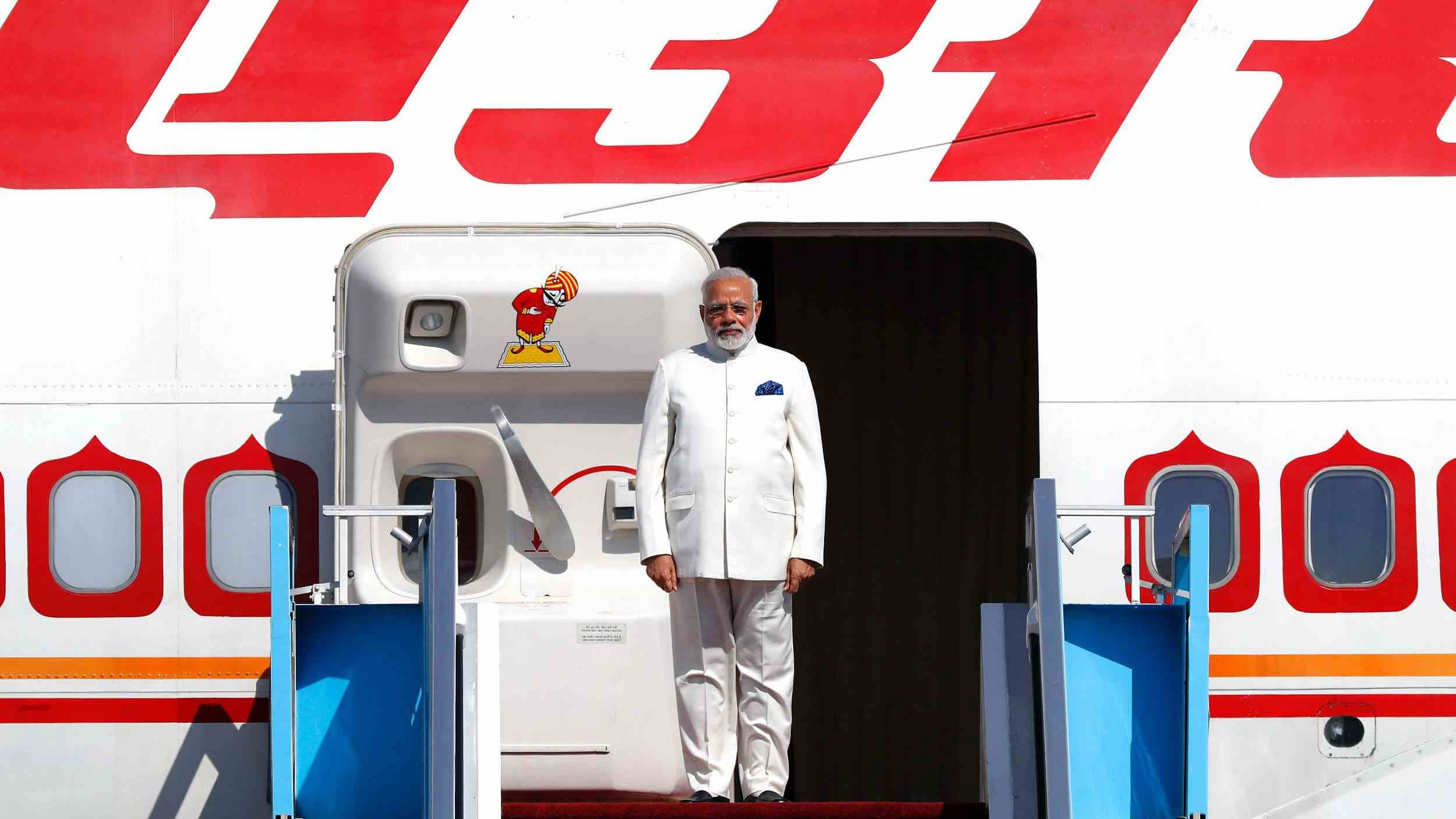
India and Israel finally make their relationship public as Narendra Modi becomes the first sitting prime minister of India to visit Israel.
Modi's three-day visit to the Jewish state began as he landed at Israel's Ben-Gurion airport on Tuesday.
In a scheduled meeting with his counterpart Benjamin Netanyahu, Modi is expected to discuss fight against terrorism and bilateral economic ties.
“I look forward to holding extensive talks with my friend, @IsraeliPM @netanyahu, who shares a commitment for vibrant India-Israel ties,” Modi tweeted before leaving for Israel.
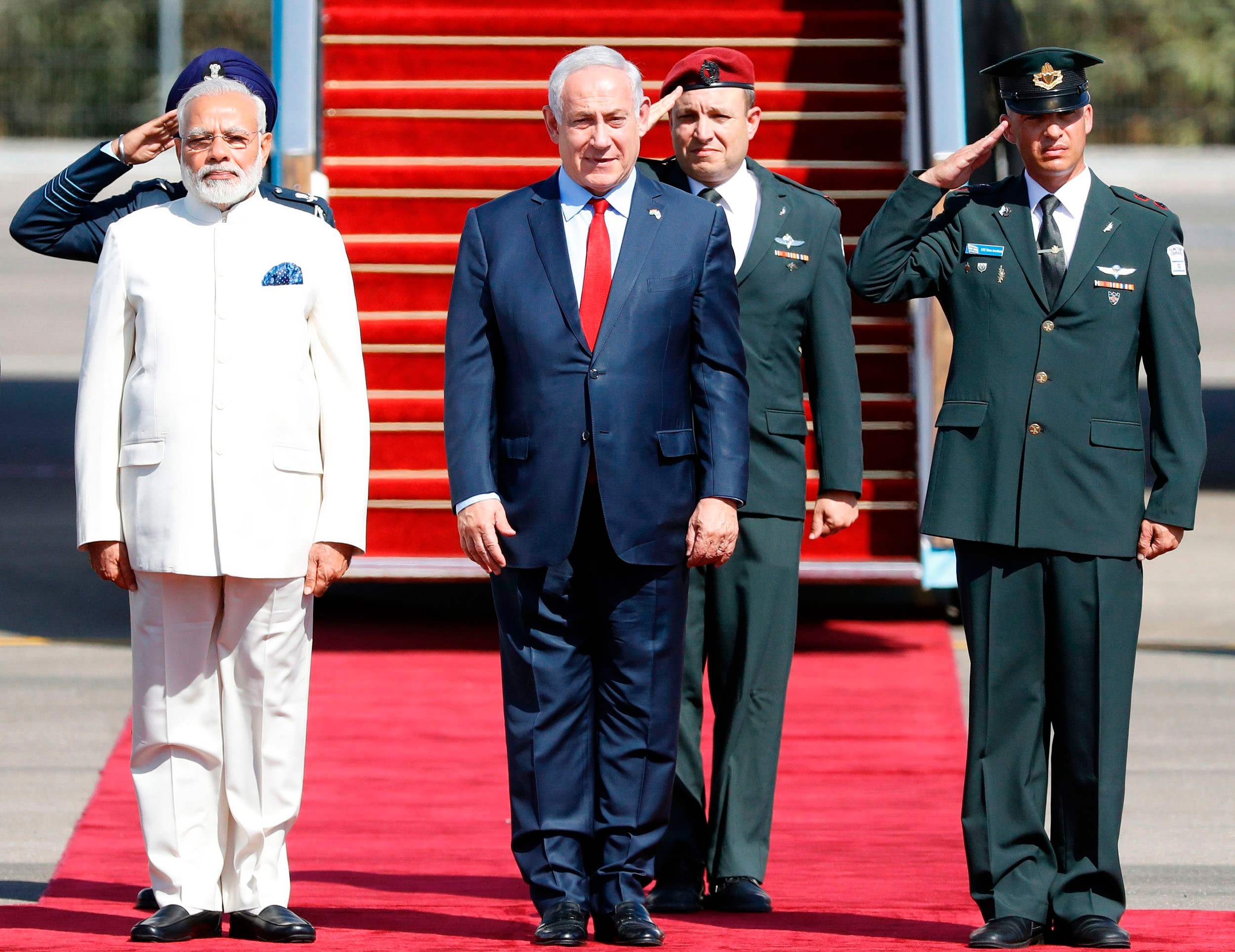
Israeli Prime Minister Benjamin Netanyahu (C) and Indian Prime Minister Narendra Modi (L) at a welcome ceremony at Ben-Gurion International airport near Tel Aviv on July 4, 2017. /VCG Photo
Israeli Prime Minister Benjamin Netanyahu (C) and Indian Prime Minister Narendra Modi (L) at a welcome ceremony at Ben-Gurion International airport near Tel Aviv on July 4, 2017. /VCG Photo
"We are confident that 25 years from now, Indians and Israelis will look back on this visit as the first of many historical milestones that we reached together in the great friendship between our peoples," he said in another tweet.
It is the first public display of the diplomatic ties between the two countries that were established in 1992.
Before that the relations remained standoffish, at least from India's side.
India had been hostile toward Israel during the Cold War era and a vocal supporter of the Palestinian people's cause.
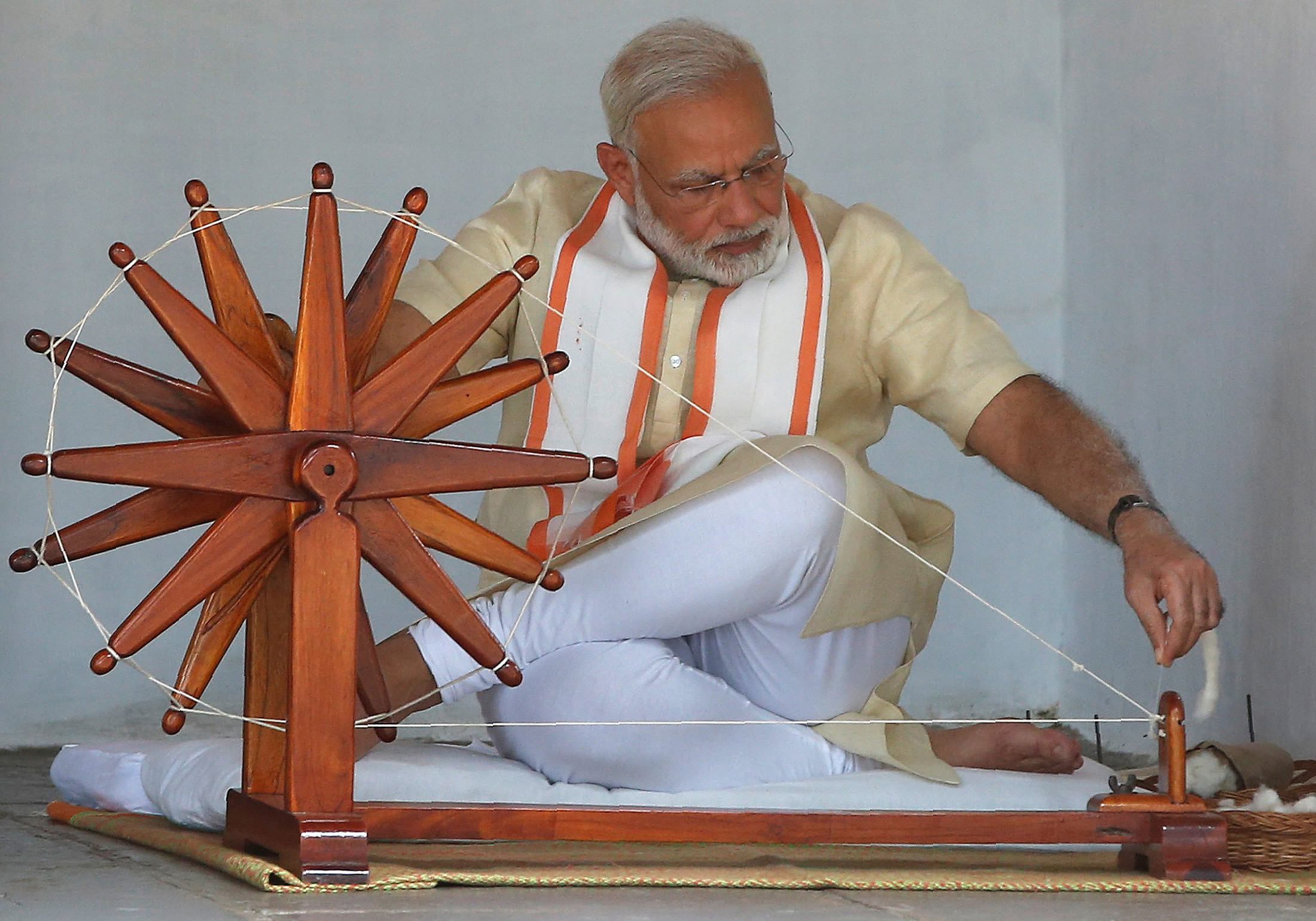
India's Prime Minister Narendra Modi spins cotton on a wheel during his visit to Gandhi Ashram in Ahmedabad, India, June 29, 2017. /VCG Photo
India's Prime Minister Narendra Modi spins cotton on a wheel during his visit to Gandhi Ashram in Ahmedabad, India, June 29, 2017. /VCG Photo
The Palestinians, not this time
Modi met Palestinian President Mahmud Abbas in New Delhi in May.
But Ramallah, the seat of Palestinian Authority, is not included on Modi's itinerary, a stark contrast to most visiting world leaders, including Indian President Pranab Mukherjee and External Affairs Minister Sushma Swaraj last year.
Critics wonder since Modi is skipping Ramallah, does that mean India is shifting its position on Israel or is he simply ignoring the Palestinians?
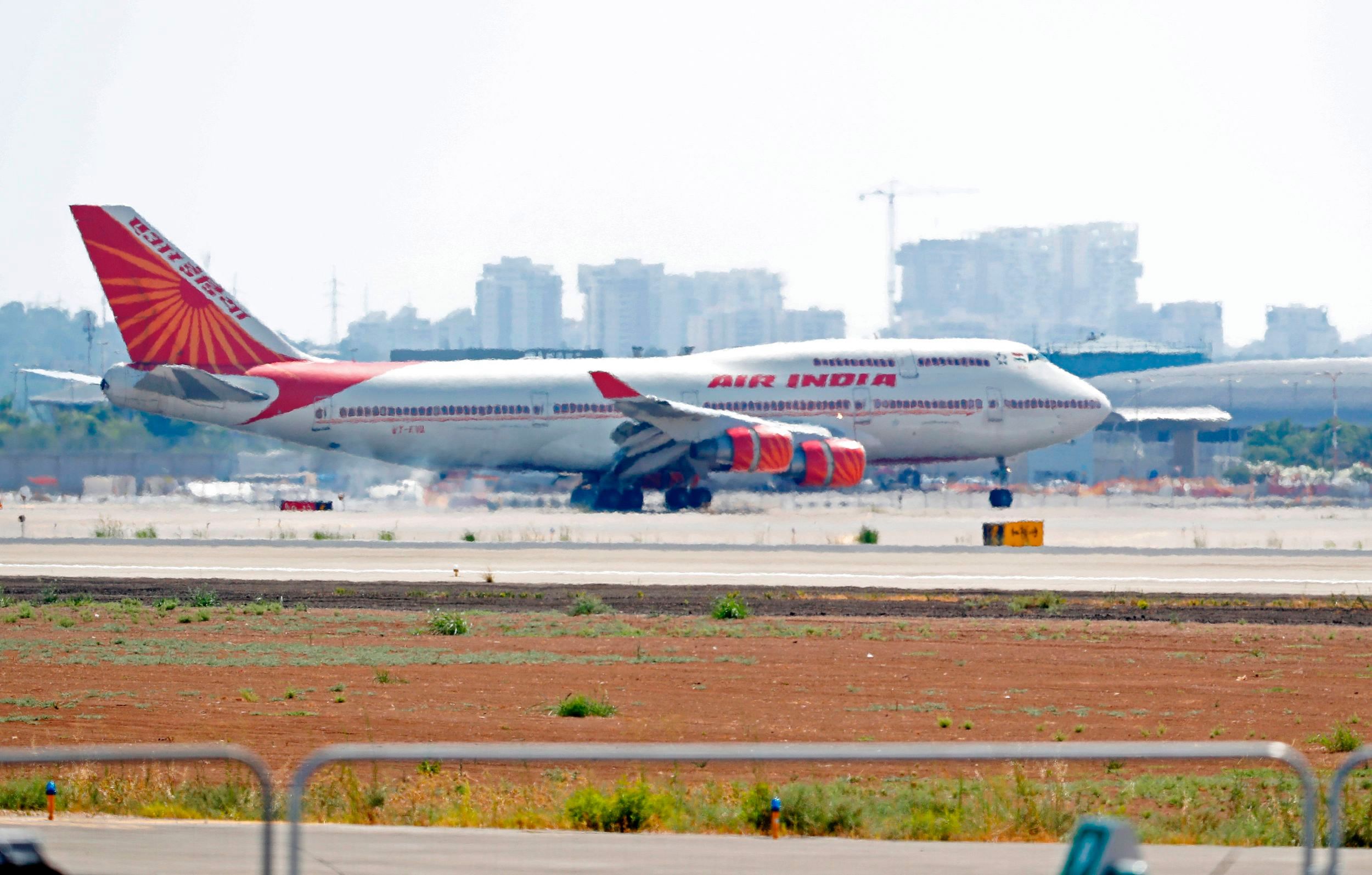
The plane carrying Indian Prime Minister Narendra Modi arrives at Ben-Gurion International airport near Tel Aviv on July 4, 2017. /VCG Photo
The plane carrying Indian Prime Minister Narendra Modi arrives at Ben-Gurion International airport near Tel Aviv on July 4, 2017. /VCG Photo
"India hasn’t abandoned the Palestinian cause, as Modi’s apparent snub, would suggest," writes David Rosenberg in Israel's English daily Haaretz, "But it does signal a new strategy of 'de-hyphenating' the Israeli-Palestinian issue. That can only leave the Palestinians worse off."
New World
But the world has certainly changed.
India needs a powerful ally that could help it upgrade the arsenals to counter the regional rivals Pakistan and China.
Israel and India make more than 1 billion US dollars of defense deals a year, according to Israeli media.
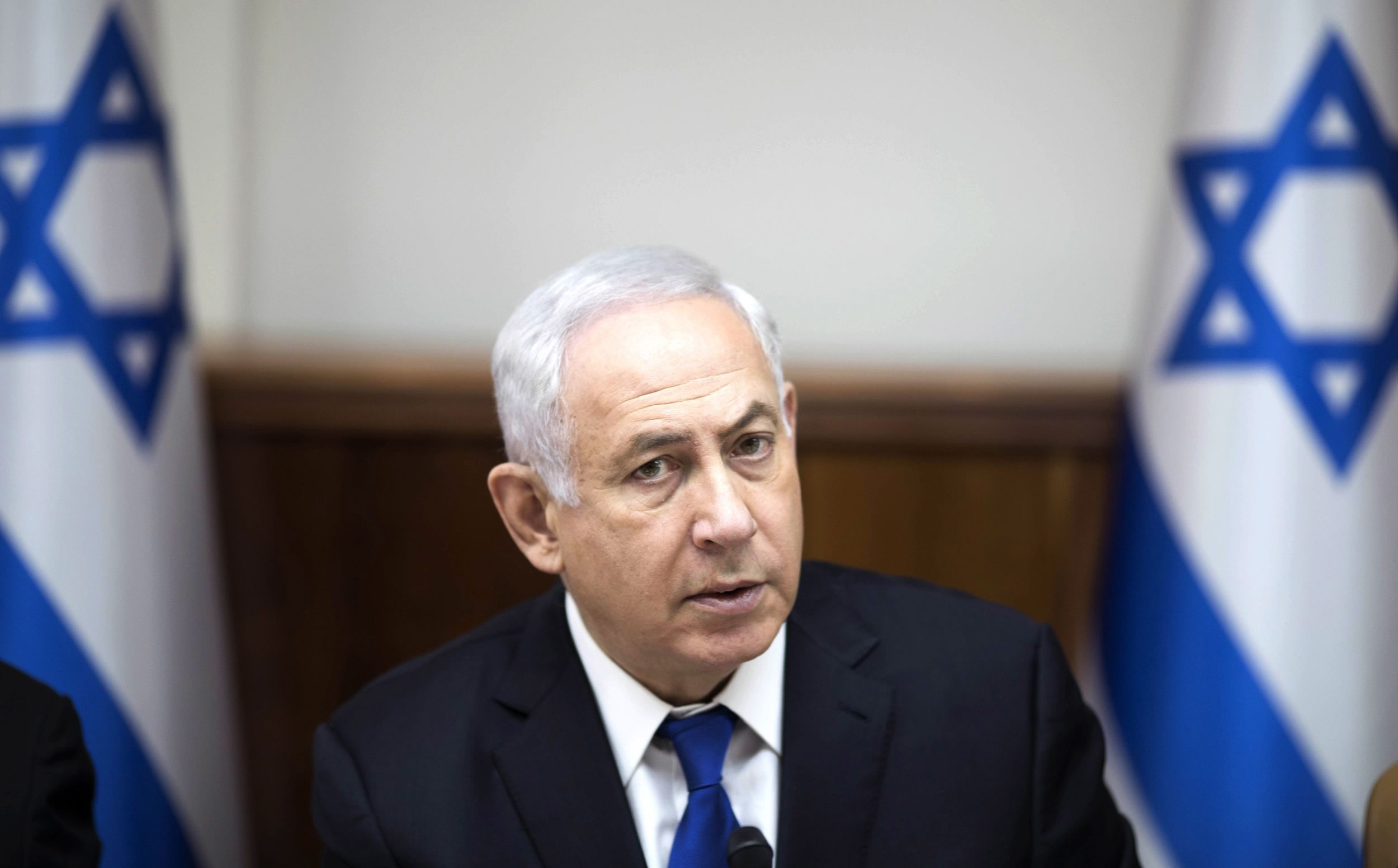
Israeli Prime Minister Benjamin Netanyahu terms Modi's visit as historic. /VCG Photo
Israeli Prime Minister Benjamin Netanyahu terms Modi's visit as historic. /VCG Photo
Israel is one of India's major suppliers for defense equipment as India tops the world in weapon imports.
It is not India alone that seems to shift its position on the Jewish ally, but the widespread attention Modi's visit gets in Israel also shows the mood on the other side.
"This is a historic first visit by an Indian PM to Israel in 70 years; it attests to the fact that our relations with India became closer," said a tweet from @IsraeliPM, the official Twitter account of the Israeli PM's office.
"This visit will deepen cooperation in a wide range of fields – security, agriculture, water, energy – basically in almost every field Israel is involved in," Netanyahu told his cabinet in public remarks on Monday.
Israel is surrounded by hostile neighbors because of its position on the Palestinians and it continually looks for supporter in the UN.

SITEMAP
Copyright © 2018 CGTN. Beijing ICP prepared NO.16065310-3
Copyright © 2018 CGTN. Beijing ICP prepared NO.16065310-3